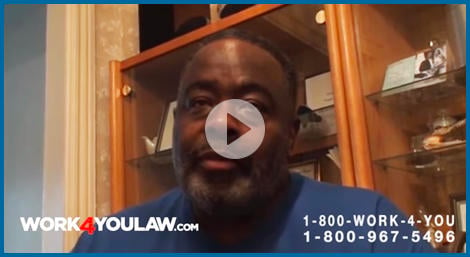

How to Pick a Safe Helmet
Choosing the right motorcycle helmet for you is absolutely essential when it comes to best protecting your head in the event of a crash. When picking a helmet, its color, design and price may be a part of your decision, but it is important to think first about protection and comfort. There are a number of different types of helmets to choose from:
• A full-face helmet gives the most protection since it covers most of the face. They have moveable face shields that also protect the eyes.
• A three-quarter open-face helmet is constructed with the same basic components, but does not offer face and chin protection. Those using an open-face helmet should have a snap-on face shield in place when they ride or buy a pair of goggles that can withstand impact.
• A “shorty” half-helmet protects even less of your head. These are not recommended since they can come off your head. Novelty helmets must be avoided altogether.
The helmet you purchase should also meet minimum safety standards. Look for the DOT and/or Snell sticker on the inside or outside of the helmet. This means the product complies with safety standards that test the helmet’s shock-absorbing capacity, its ability to withstand a blow from a sharp object, the chin strap’s ability to stay fastened without breaking and its ability to provide a minimum side vision of 105 degrees.
New York Motorcycle Accident Lawyer
Even while wearing a helmet, injuries could still occur to the rider involved in a motorcycle crash. If you or a loved one has been injured or if you have lost a loved one as a result of a motorcycle accident, the experienced New York personal injury attorneys at the Law Offices of Kenneth A. Wilhelm can help you better understand your legal rights and options. Our skilled car accident attorneys have a proven track record of helping injured victims get fair compensation for their losses. Our law firm recovered $5,600,000 out of a $6,000,000 insurance policy for a man on a bike who collided with a van. Please contact us TOLL FREE 24 hours a day, 7 days a week at 1-800-WORK-4-YOU (1-800-967-5496). WE CAN EVEN COME TO YOU. There is no attorneys’ fee unless we recover money for you. We can also help with personal injury cases in New Jersey, Connecticut, Pennsylvania, or Florida. If you have been seriously injured in any of the 50 U.S. states, please call us and we will try to help you with your case.
Other TOLL FREE phone numbers for us are:
1-800-RADIO-LAW, 1-888-WYPADEK, OR 1-800-LAS-LEYES
Please visit us at: www.WORK4YOULAW.com
Source: National Highway Traffic Safety Administration (NHTSA)How to Pick a Safe Helmet
Choosing the right motorcycle helmet for you is absolutely essential when it comes to best protecting your head in the event of a crash. When picking a helmet, its color, design and price may be a part of your decision, but it is important to think first about protection and comfort. There are a number of different types of helmets to choose from:
• A full-face helmet gives the most protection since it covers most of the face. They have moveable face shields that also protect the eyes.
• A three-quarter open-face helmet is constructed with the same basic components, but does not offer face and chin protection. Those using an open-face helmet should have a snap-on face shield in place when they ride or buy a pair of goggles that can withstand impact.
• A “shorty” half-helmet protects even less of your head. These are not recommended since they can come off your head. Novelty helmets must be avoided altogether.
The helmet you purchase should also meet minimum safety standards. Look for the DOT and/or Snell sticker on the inside or outside of the helmet. This means the product complies with safety standards that test the helmet’s shock-absorbing capacity, its ability to withstand a blow from a sharp object, the chin strap’s ability to stay fastened without breaking and its ability to provide a minimum side vision of 105 degrees.
New York Motorcycle Accident Lawyer
Even while wearing a helmet, injuries could still occur to the rider involved in a motorcycle crash. If you or a loved one has been injured or if you have lost a loved one as a result of a motorcycle accident, the experienced New York personal injury attorneys at the Law Offices of Kenneth A. Wilhelm can help you better understand your legal rights and options. Our skilled car accident attorneys have a proven track record of helping injured victims get fair compensation for their losses. Our law firm recovered $5,600,000 out of a $6,000,000 insurance policy for a man on a bike who collided with a van. Please contact us TOLL FREE 24 hours a day, 7 days a week at 1-800-WORK-4-YOU (1-800-967-5496). WE CAN EVEN COME TO YOU. There is no attorneys’ fee unless we recover money for you. We can also help with personal injury cases in New Jersey, Connecticut, Pennsylvania, or Florida. If you have been seriously injured in any of the 50 U.S. states, please call us and we will try to help you with your case.
Other TOLL FREE phone numbers for us are:
1-800-RADIO-LAW, 1-888-WYPADEK, OR 1-800-LAS-LEYES
Please visit us at: www.WORK4YOULAW.com
Source: National Highway Traffic Safety Administration (NHTSA)
WE CAN EVEN COME TO YOU! 1-800-967-5496
Personal Injury & Medical Practice Cases Only
Fighting Hard for Injured People for Over 52 Years
- $43,940,000 & $23,500,000 Million Dollar Verdicts
- Two 1st Place Settlements Out of Over 332,000 Lawyers
- No Fee Unless We Recover Money For You
HAVE YOU BEEN INJURED? CALL 1-800-967-5496
Free Phone Consultation for Personal Injury & Malpractice Cases









